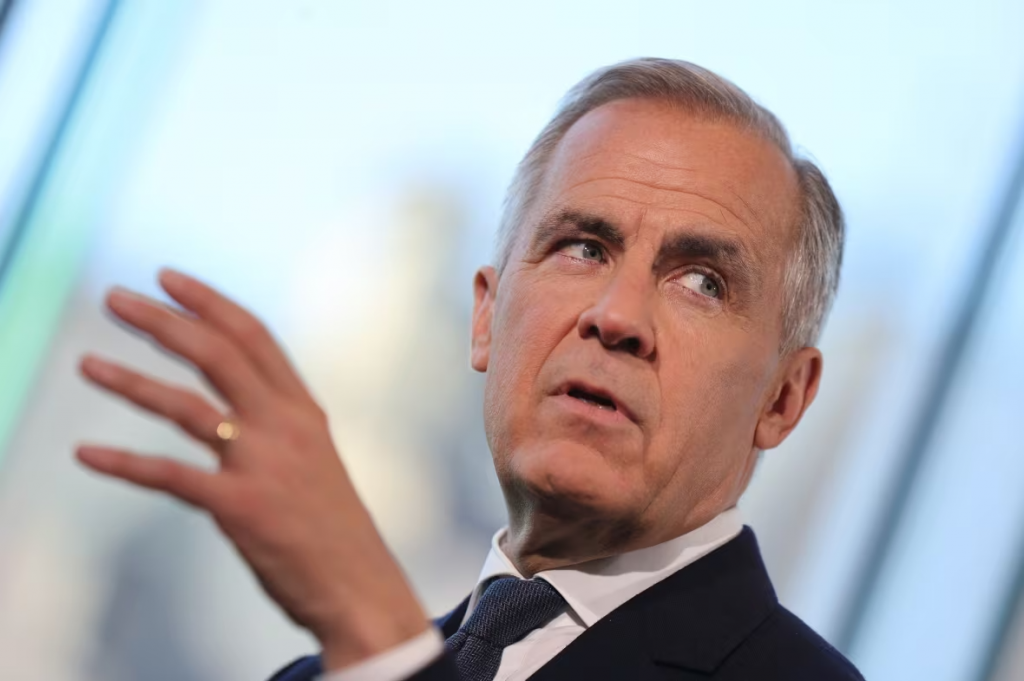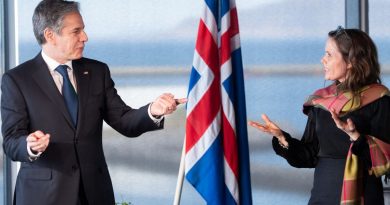Carney says Canada is looking to join major European military buildup by July 1

‘By Canada Day we’d like to see something concrete there,’ PM tells Power & Politics
Prime Minister Mark Carney signalled he hopes Canada will be able to sign on to a major European defence rearmament plan by July 1, a step toward reducing the country’s dependency on the United States for weapons and munitions.
He made the remarks on CBC’s Power & Politics following the speech from the throne, which committed his government to joining ReArm Europe.
The speech did not set out a timeline, but Carney said he wants to move aggressively.
“Seventy-five cents of every dollar of capital spending for defence goes to the United States. That’s not smart,” Carney told host David Cochrane.
Canada has been engaged in talks with the European Union since Carney took office — before the spring federal election — about joining the plan which foresees the nations on the continent spending $1.25 trillion on defence over the next five years.
“We’re making great progress on that, and by Canada Day we’d like to see something concrete there,” Carney said.
Not long after the prime minister made the pitch for closer defence co-operation with Europe, U.S. President Donald Trump took to Truth Social to say that his administration was negotiating with Canada about joining his “Golden Dome” missile defence system, which “will cost $61 Billion Dollars if they remain a separate, but unequal, Nation, but will cost ZERO DOLLARS if they become our cherished 51st State. They are considering the offer!”
Carney, in his own Oval Office meeting with Trump, has made it clear Canada was not interested in joining the U.S.
Talk of NATO spending hike
The comments and the throne speech pledge also come one day after NATO Secretary General Mark Rutte told an alliance parliamentary conference in Dayton, Ohio, that he expects the 32-member Western military alliance will approve a new defence spending threshold of five per cent of the gross domestic product at the upcoming leaders’ summit.
“We are finalizing a plan to dramatically increase defence spending across the alliance,” said Rutte, which suggested the NATO target for direct spending on the military could be set at 3.5 per cent of GDP with an additional 1.5 per cent GDP tacked on for defence-related items.
U.S. President Donald Trump has been advocating for the five per cent of GDP spending figure for months. In his Power & Politics interview, Carney said Canada will spend what makes sense and wouldn’t commit to a specific figure.
“I’m not a fan of picking an arbitrary number and then trying to figure out how to spend up to it,” the prime minister said. “At the NATO summit, NATO partners are going to be asked to spend more, to do more, for mutual protection. We’re going to participate in that.”
At the moment, Canada spends about 1.37 per cent of its GDP on defence, a far cry from the existing target of two per cent, which allies agreed more than a decade ago to work toward. Carney, during the recent federal election, committed to getting Canada to that goal by 2030.
The prime minister said there’s no question Canada is going to increase its defence spending, but cautioned it’s going to be done in a manner that benefits the country.
There are several questions the country must ask itself before committing to a number, Carney said.
What is necessary to secure our country? What is needed to secure our borders, the Arctic, our sovereignty? What do we need to do with our partners, including our partners in NATO, for a safer world? What could it cost? Then, how do we get those costs down and how do we make sure those expenditures benefit Canada as much as possible?
Canadians will have to wait to get those answers.
“We are going to have to spend more, sooner,” the prime minister said. “That’s one of the reasons why we will have a fall budget, not a budget tomorrow, because we’re part of deeper discussions on the defence side.”
Related stories from around the North:
Canada: Arctic energy, security on agenda as Western premiers meet in Yellowknife, CBC News
Denmark: Danish PM pledges to support Greenland against Trump pressure, Thomson Reuters
Finland: US, Norwegian forces in Lapland for rapid reinforcement exercise, The Independent Barents Observer
Iceland: Iceland’s FM announces defence review, calls revamped security policy ‘urgent’, Eye on the Arctic
Norway: Norway eases self-imposed restrictions on NATO training, CBC News
Russia: Russia’s nears completion of new Arctic missile carrier, The Independent Barents Observer
Sweden: Sweden’s Armed Forces: Railways must function without modern technology, Radio Sweden
United States: White House releases U.S. Arctic strategy implementation plan, Eye on the Arctic



